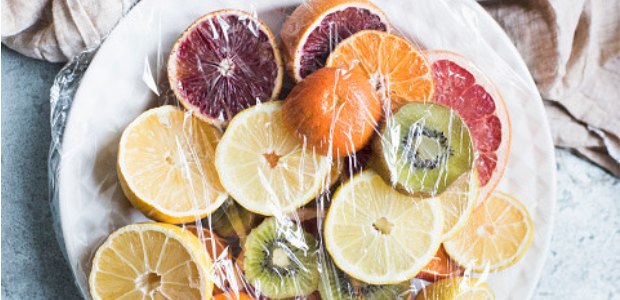(image: Getty images)
Plastic wrap has been the go-to storage source in most home and restaurant kitchens globally since its introduction in 1949. It’s fast, effective and does a great job at covering leftovers or wrapping lunchbox sandwiches. Sadly, it’s usually thrown away after that single use.
Half of all plastic ever manufactured has been produced since the year 2000. According to National Geographic, this rapid plastic production contributes to 18 billion tonnes of plastic waste found in oceans every year. To give you an idea how much that is, think of 18 billion bulls covering shores worldwide.
Here are 4 eco-friendly solutions to break-up with your plastic wrap for good.
Glass containers
You can store your meals in glass jars, lunchboxes and bottles. It’s the perfect vehicle for salads, stews, pasta and flour, plus they transport very well.
Wax wrap
Leave the plastic wrap behind and wrap your sandwiches and baked goodies (such as cookies or granola bars) in wax paper instead.
Bees’ wrap
This reusable and biodegradable food storage wrap can cover a lemon that’s been cut in half or serve as a lid for your storage containers.
Aluminium foil
Although foil takes 400 years to decompose, it’s still a more environmentally friendly alternative compared to plastic wrap (which takes 1000 years to decompose, according to The Balance). Aluminium foil can be reused in the kitchen if it isn’t torn or if it’s void of spills. It can also be recycled if you clean off any excess food left on the foil.
If you’re in a pinch or can’t afford to use the above-mentioned items and plastic wrap or plastic containers is all you have available, use the below guide to help you recycle. (And remember always to keep the box it came in for reference!)
Remember to separate your items into individual bags according to their recycling logos.
For more recycling information, you can visit treevolution.co.za.
Do you use plastic wrap in your household? Let us know in the comments how you plan on reducing your carbon footprint for a better tomorrow.
ALSO READ:

